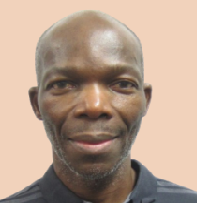Shelter could be described as a dwelling place (such as a building) that gives temporary protection and offers cover from bad weather or danger. Human beings by nature are social animals that need a place or building they can go to for help most essentially; especially to catch sleep. It could further be described as a temporary residence or permanent refuge for the homeless. A homeless person in its clear definition (by my humble self) is anybody that does not have a shelter. Shelter is vital for man’s existence and survival in life because, it protects for safety, it is also a place that one has recourse for relief, aid and refuge (refugee camps like in the internally displaced persons’ camps, also known as IDP camps that exist in Nigeria due to insecurity of life or due to natural disaster caused by adverse weather condition or the climate change/the global warming).
The United Nations’ 17 Sustainable Development Goals (SDG or the global goals) that are meant to transform our world, essentially lays much emphasis, and primarily points at poverty, hunger, and the well-being of man. Discussing SDG further, there are three core elements that are crucial and interconnected (environmental protection, social inclusion and economic growth) that should always be harmonised for the well-being of man and the society; if the SDG must be achieved. Well-being of man primarily takes shelter first before others because, without protection of life, every other thing is secondary and might be meaningless (if no life). It is essentially at this point, to note that shelter has social class distinction or categories (for both the rich and the poor).
Homelessness (having no home or permanent place of residence) and destitution (being without money, food, a home or possessions) are social challenges that have close similarities or characteristics that are all linked to the social problem of the basic needs of man (for everyone); which is food, clothing and shelter. All the countries of the world have as their primary responsibility in governance, to “chase away” poverty by the means of providing job opportunities through economic engagement for their citizens, as a means of daily income (no matter the level); and at the same time address the issue of better living with shelter over their heads (either by rented arrangement or outright acquisition or possession of homes). In other words, it serves as a home and it could be provided by a residential body or real estate developers for renting (which is not exclusive). The role of providing a place to stay or live involves setting up architectural structures that provide protection from the immediate environment; which is the primary focus of REDAN in the economy, specifically targeting the reduction poverty by creating affordable housing that the low income earners can easily and seamlessly acquire in the society, especially at retirement for the civil servants as pensioners (which could be structured and packaged to include a mortgage arrangement).
This particular basic need of man – shelter in the contemporary society – has a whole lot of challenges facing it. These can be enumerated as monetary or paucity of funds, demographic factors like the rapid global population growth, social issues and (not limited to) technological capacity. Such challenges crystallise to create the biting housing deficit, which REDAN from its end is engaging the general public to effectively address. REDAN exists to facilitate the delivery of affordable mass housing for the less privileged and vulnerable class in the society. Their essential role in the life of man within our society cannot be quantified and therefore, calls for both civil society and government alike, to key in seriously and partner with REDAN in their core professional tasks of providing affordable housing in their business within the physical planning and estate development subsector of the economy. The expected synergy that will be created will positively rub off on the nation’s economic growth and development. It is a fact that sound minds plan better, organise more efficiently through impactful management of available resources that produce excellent performance in the nation’s economic efficiency (the right GDP growth rate and progressive productivity within the macro economy). Hence, the need for shelter where a man can lay his head and catch enough sleep to enable him function well at his place of work.
It is therefore necessary that the federal government should take the programmes of REDAN more seriously in their efforts to reduce or fill the housing deficit challenges of this economy. The concept of the 774 Project of REDAN that is popularly called and known as RUHI-774 REDAN Housing Scheme should be aggressively addressed along with the proposed REDAN City/communities; proposed to be established in all parts of the country. These are clearly visible programmes that can stamp out housing deficit challenges from the economy within a very short time, if actually the UN’s SDG goals within Nigeria are seriously and sincerely meant to be achieved and accomplished.
- business a.m. commits to publishing a diversity of views, opinions and comments. It, therefore, welcomes your reaction to this and any of our articles via email: comment@businessamlive.com










